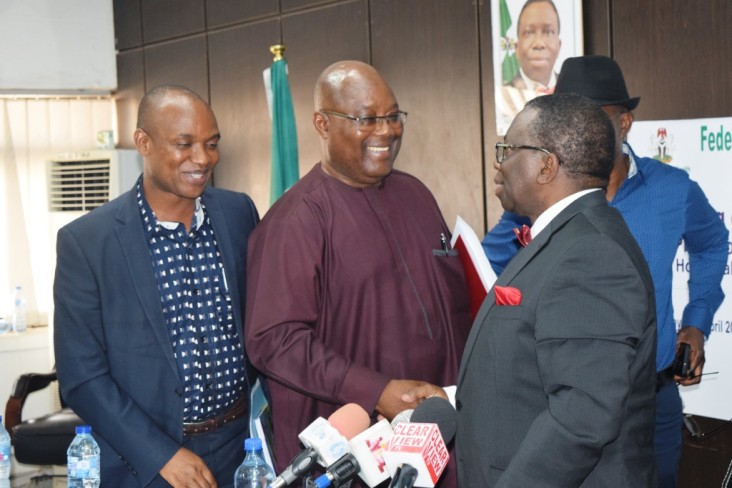Press Release Shim
Speeches Shim

The USAID-funded Registry will serve as a vital resource for the country
For Immediate Release
Abuja – The U.S. Agency for International Development (USAID) recently joined Nigeria’s Minister of Health, Prof. Isaac Adewole, to launch the Master Facility List and the Health Facility Registry to improve the quality of health data and health service delivery across the country.
The USAID-funded Registry will serve as a vital resource for the country, which will comprise, for the first time, up-to-date information and a comprehensive list – including geographic location, contact information, and services provided – of over 40,000 health facilities across Nigeria.
“This is an important step forward in our ability to develop a macro database of the health care system in Nigeria,” Prof. Adewole said. “The registry will tell us accurately how many health care facilities we have in Nigeria, and more importantly how many of these are functional.”
The Registry will be a constantly evolving repository to log each newly created health facility, and identify existing facilities that have closed down, presenting health officials with a true picture of where services are available – and where they are not. Support for the Registry, including the important task of integrating it with the National Health Management Information System as well as ongoing maintenance and governance, has been transitioned to the Department of Health Planning, Research, and Statistics.
While the existing Master Facility List captures all points of health service in the country on paper, the Registry is an electronic platform that maintains in near real time the latest updates on facilities. This approach will help improve data and health outcomes.
“The finalization of this master facility list is an important milestone towards the development of a functional Health Facility Registry,” said Lawrence Duke Ogbokor, USAID’s Health Management Information System Manager who represented the Mission at the launch.
The U.S. government is the largest bilateral donor to the Nigerian health sector. Since 2015, USAID has invested $864.5 million to health programs that promote access to primary health care, reduce infant mortality, family planning and reproductive, maternal, and child health, immunizations, polio eradication, malaria prevention and treatment, and HIV and AIDS and tuberculosis control.

Comment
Make a general inquiry or suggest an improvement.